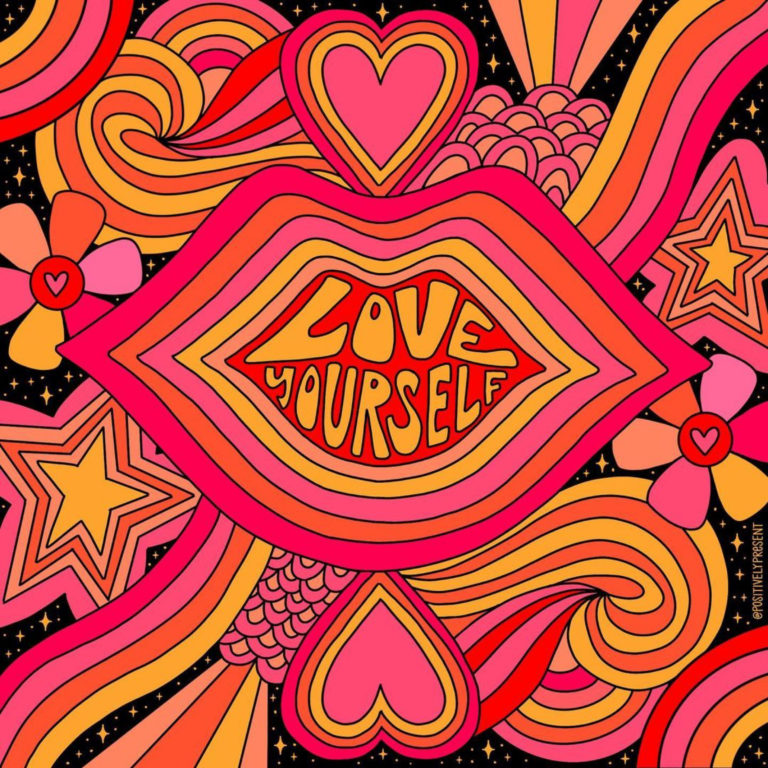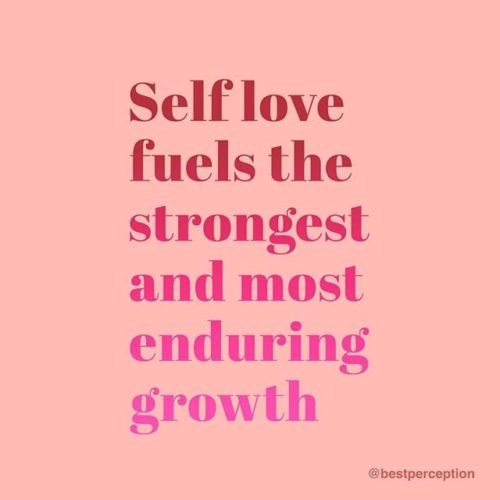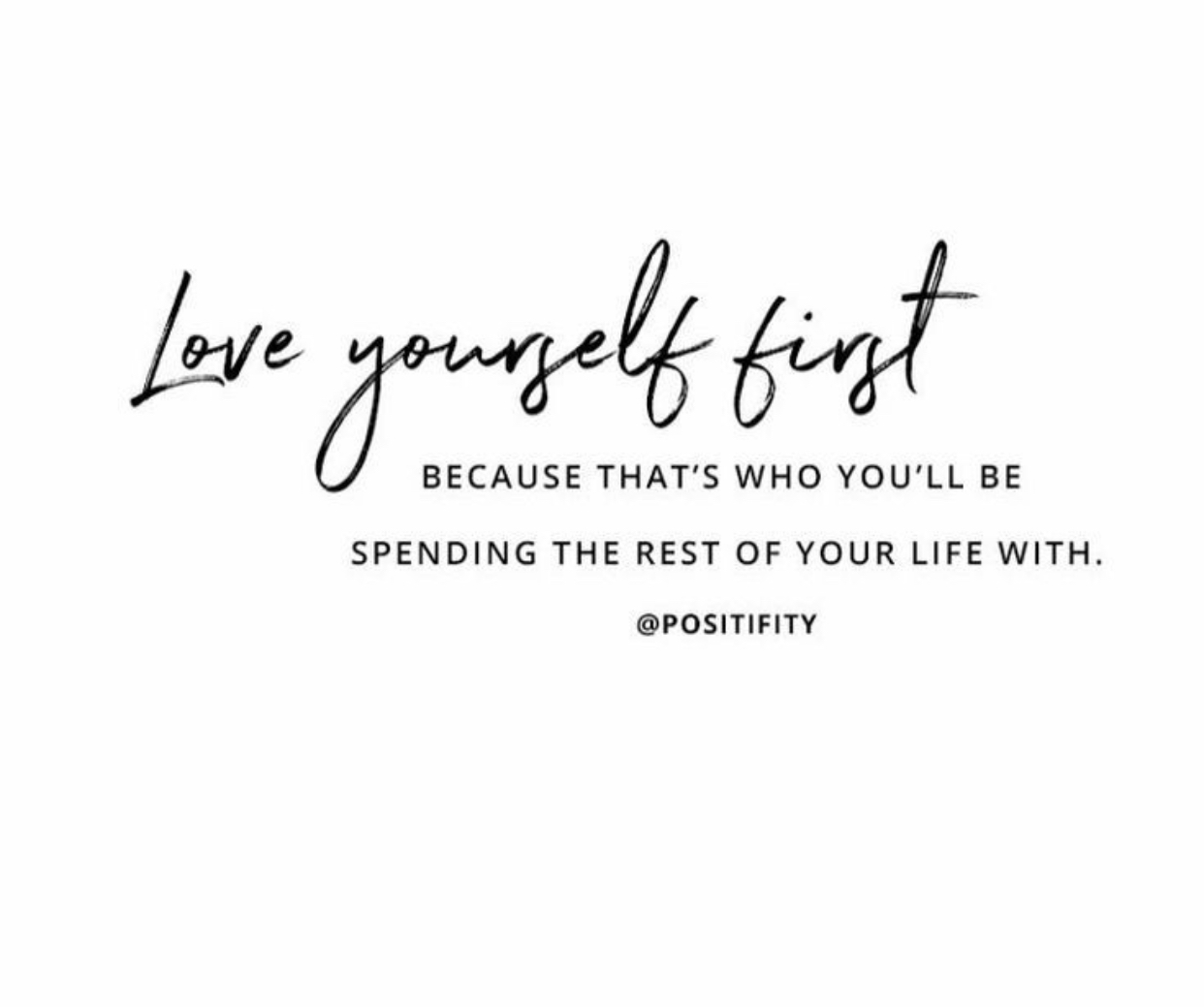
(Art by Dani DiPirro @positivelypresent)
Today is a day dedicated to embracing love and desire. But first, love yourself. Learn to give yourself love and prioritize taking care of YOU. Here are all of the reasons why self-love is needed for overall health and wellbeing. It makes you feel good and is essential for all types of relationships.
What is self-love?
It’s taking care of your own well-being and happiness by viewing yourself with positive regard and esteem. There are three main types:
Physical—refers to how you see yourself (self-image)
Mental—refers to how you think of yourself (self-acceptance)
Psychological—refers to how you treat yourself (self-respect)
In order to create self-love in your life, you must make it a priority. It’s a daily practice and lifestyle that will change your thinking and behavior to promote health and wellbeing. Your relationship with yourself is the longest relationship you will have in your life. It doesn’t matter if you are in a partnered relationship or not. Self-love improves your overall health and wellness and is something we need to prioritize daily. All relationships are influenced by the way you treat yourself. How you take care of yourself will help you create self-worth and value.
 Being able to take care of yourself shows independence and how you expect to be treated by others.
Being able to take care of yourself shows independence and how you expect to be treated by others.
Take a look at yourself and appreciate and admire who you are. Give gratitude for the things you do to take care of yourself from mind to body. Say it out loud and validate your statements of self-love.
Give yourself a reward. Buy yourself a gift, flowers, write a self-love note, and do something special for yourself. Put on something that makes you feel confident in your appearance.
Self-pleasure is a form of self-love. Give your body the gift of pleasure. Self-guided pleasure can boost self-esteem and mood and make you feel more confident. Any type of exercise or physical activity that gets you moving and feeling good is self-love.
Self-care is designed by you, for you. There is no judgment around what you do for your own well-being as long as it brings you pleasure and evokes positive thoughts and feelings.
Being in a state of self-love makes you more readily available for love connections with others. It improves your self-perception and sets up your standards for relationships. Enjoy the confidence boost by flirting or letting someone know you have a crush on them. Love is a powerful emotion that claims your consciousness and can be a powerful provoker of sexual desire.
Here is a guide for daily self-love:
- Don’t compare yourself to others. Each individual is on their own life journey so don’t compare yourself to someone else. Learn to own your path and be guided by your worth and purpose.
- Accept all of yourself. You are not a bunch of parts or an object that you treat badly. You are one whole human being that is worthy of all life has to offer. Move past your negative body image and thoughts that hold you back from experiencing your true potential. Self-acceptance is the truest form of self-love.
- Face your fears. Fear holds you back in life and keeps you trapped in the grips of anxiety. Learn to control your thoughts and slow down to feel present and grounded. Be in the moment and let go of the outcome. Fear only exists because you give it the power to exist.
- Build a relationship with yourself that includes listening to your inner thoughts and desires, processing emotions and journaling, and self-affirmations towards a secure mindset about your life and the future. Make this a daily ritual that you start and end your day with.
- Romance yourself. Take time to get ready for you, put on something that turns you on, and groom and dress to feel your best. Give yourself the love you desire and crave. Make it romantic and heartfelt, if that’s your style. Romance is a creative way to express your love.



